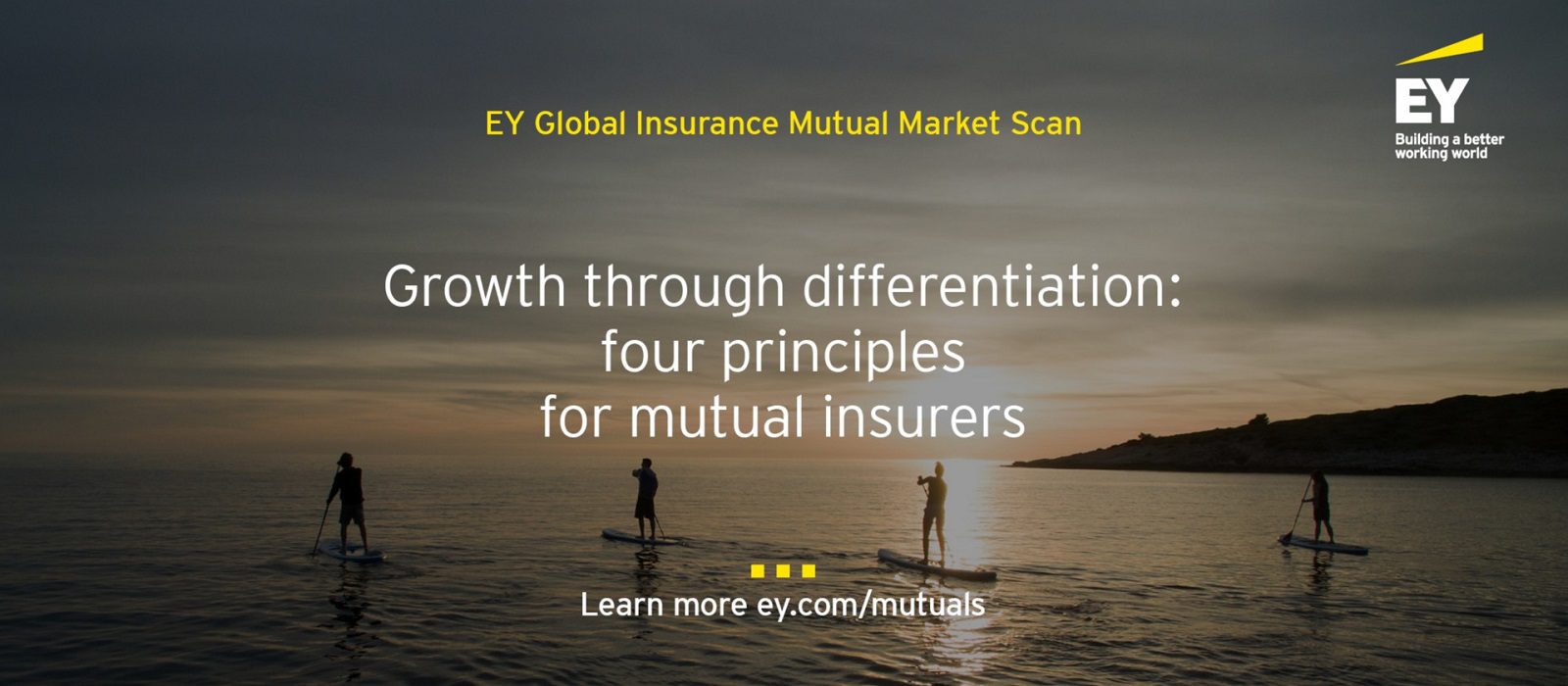Mutual insurers can differentiate through purpose-led strategies, member centricity, value creation and social responsibility says a new report from ICMIF Supporting Member EY.
Following a review of the global mutual insurance market, the EY global insurance mutual market scan reveals what sets mutual and cooperative insurers apart from stock carriers.
EY’s scan found that mutual insurers represent an important and growing sub-segment of the overall insurance market, with some of the most prominent and successful brands in the industry. Mutual insurers, which EY refer to as “mutuals,” are better capitalised than their stock insurer counterparts and grow at marginally higher rates, though they run underwriting losses some years due to their practice of paying dividends to policyholders.
Just as the strategic priorities of stock carriers are changing, EY says mutuals also face an evolving landscape, with fast-rising customer expectations, new competitive threats and disruptive technologies – all issues at the top of C-suite and board agendas across the insurance industry.
To understand the most important imperatives for mutual and cooperative insurers and define just what sets them apart from stock carriers, EY conducted an extensive scan of the mutual market (pdf) during 2020. Specifically, EY looked at how mutuals of all sizes and types devise and operationalise purpose-led strategies to differentiate themselves and accelerate growth. Indeed, EY says, mutuals seem uniquely well positioned in an era where purpose and long-term value creation have become strategic imperatives for the entire industry.
Reflecting on the report, Shaun Tarbuck, Chief Executive, ICMIF said, “The mutual differentiator is all about the long-term and sustainable nature of the business. It’s about being purpose-driven, for the members but also the customers, society, employees and the whole gambit of stakeholders that we impact. I believe we are well ahead of the game in this.”
EY conducted benchmarking surveys in more than 35 markets around the world, and engaged 140 participants, mainly senior executives from EY’s Insurance practice. Research for the global scan also included a deep analysis of 10 mature mutual insurance markets and the market performance of more than 50 mutual insurers.
EY says its research scan focused on the areas that serve as a framework for mutual operations, including policyholder and member engagement, financial benefit, community orientation, value-add services, governance and funding structure, product and policy differentiation, and portfolio strategy and innovation.
From this research, EY identified four core principles that differentiate mutual insurance companies from stock carriers:
- Purpose-led strategies prioritise long-term thinking and value over profitability.
- Member centricity requires owner engagement models unique from standard customer engagement models.
- Value creation for core and peripheral member segments is critical to growth and innovation.
- Social and economic change across local communities and underserved segments is fundamental to brand and purpose.
Collectively, these principles represent a strategic playbook for mutuals to find success in the dynamic, technology-enabled and purpose-led insurance industry of the future. Click here to read the EY article in full. The article by Puneet Chattree, EY Global Insurance Mutuals Network Leader and EY Canada Insurance Pension Strategy & Business Consulting Leader, explores the four principles and describes the mutual maturity model EY developed based on the research. It also includes survey findings and panellist comments from a recent virtual EY event attended by more than 150 senior insurance executives. ICMIF members that wish to access the exclusive recording of this webinar should contact ICMIF (or contact their local EY representative).
In April 2021, ICMIF announced that EY had become a Supporting Member of the Federation. In this new partnership, ICMIF members can leverage EY knowledge, expertise and support in areas ranging from digital transformation and tax services, to transactions and IFRS implementation.
To learn more about EY, please visit their dedicated Supporting Member page on the ICMIF website.






